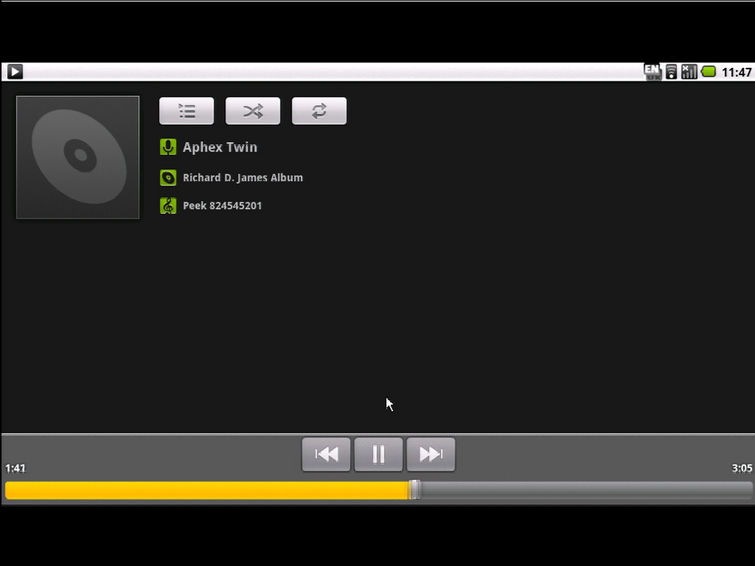Acer Aspire One D250 review
Acer is the first manufacturer to offer Google's Android operating system on a netbook. Is this a turning point for the market? Or not? We review the Acer Aspire One D250 to find out.

Judged on its own, the Aspire One is a decent netbook, with a great screen, and with a 6-cell battery as standard, it offers reasonable battery life. However, Android proves to be a somewhat disappointing experience, while Windows 7 feels a tad sluggish, leaving this as an interesting machine but not one we'd rush to recommend.

Searching from here launches the default web-kit based browser but interestingly Firefox is included as well, a tacit admission that a better browser is needed on a device like this.
Browsing aside, you get a webmail app, Google Talk and a Calendar, but other that than Android seems rather limited in terms of default apps, with a basic photo and music player your lot. It's acceptable on a mobile handset, but you immediately yearn for more on a laptop-type device. A visit to the Android marketplace would therefore seem in order, but oddly for some reason you can't actually buy apps from it, presumably as they would need to be netbook aware.
If you want to do more therefore, a visit to Windows is in order, and Acer makes that remarkably easy to do, as in the top left is a large arrow and pressing this brings up a dialogue box that asks if you want to switch to Windows.

The music player might be fine on a mobile, but feels rather basic on a laptop.
When you do you'll find it takes 1m 20 sec to get to a working Windows 7 desktop, which is clearly much longer that it takes to get to Android. However, you could choose to just hibernate from Windows, and resuming from that took 38 seconds for us to get to a usable desktop.
What's also immediately apparent is that while Windows 7 has been praised for being light on its feet, especially the Starter Edition here, it feels much more sluggish than Android.
If you're used to apps appearing lightening fast on recent standard laptops or desktops you'll have to be patient. The 1.6GHz Atom processor clearly struggles compared to beefier Core 2 Duo laptops. The single DIMM slot is an issue here, and one can't help feel that while Windows 7 can get by on 1GB, it would be happier with two. Our benchmark score reflects this slight sluggishness as the score of 0.30 is less than we've seen from other Windows XP machines on the same hardware.
Sign up today and you will receive a free copy of our Future Focus 2025 report - the leading guidance on AI, cybersecurity and other IT challenges as per 700+ senior executives
Benny Har-Even is a twenty-year stalwart of technology journalism who is passionate about all areas of the industry, but telecoms and mobile and home entertainment are among his chief interests. He has written for many of the leading tech publications in the UK, such as PC Pro and Wired, and previously held the position of technology editor at ITPro before regularly contributing as a freelancer.
Known affectionately as a ‘geek’ to his friends, his passion has seen him land opportunities to speak about technology on BBC television broadcasts, as well as a number of speaking engagements at industry events.
-
 Amazon says Russian-backed threat groups were responsible for five-year-long attacks on edge devices – and it shows a ‘clear evolution in tactics’
Amazon says Russian-backed threat groups were responsible for five-year-long attacks on edge devices – and it shows a ‘clear evolution in tactics’News Russian-backed hacker groups are exploiting misconfigured edge devices – now preferring that tactic over hunting down traditional vulnerabilities to gain access to company networks.
By Nicole Kobie Published
-
 UK government confirms October cyber breach: Everything we know so far
UK government confirms October cyber breach: Everything we know so farNews Details around Foreign Office hack remain sparse and government says it's unclear who is behind the attack
By Nicole Kobie Published
-
 Data center investment reached a record $61 billion this year
Data center investment reached a record $61 billion this yearNews Hyperscaler expansion, private equity interest, and a surge in debt financing are behind skyrocketing investment levels
By Emma Woollacott Published
